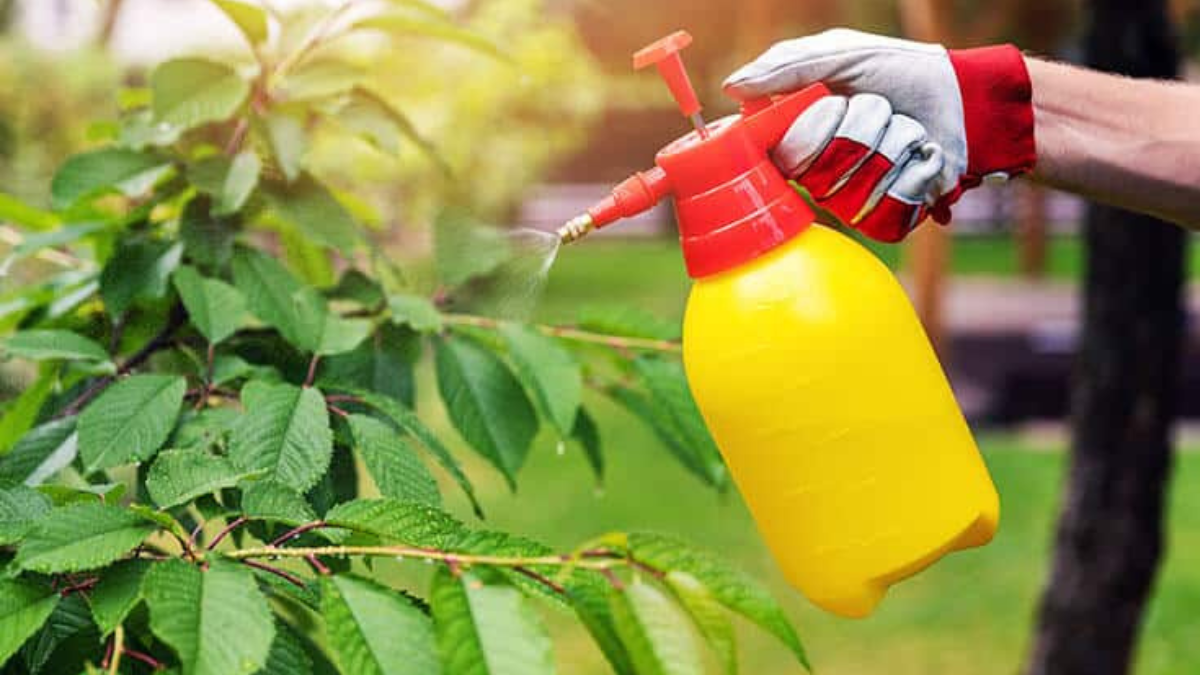Gardens serve as havens of beauty and tranquility, and they require careful attention to thrive. Implementing organic pest control practices offers numerous benefits over traditional chemical methods. Organic pest control involves using natural, non-toxic alternatives to eliminate or minimize pests in your garden. By avoiding harmful chemicals, you can create a sustainable and thriving garden ecosystem.
Espoma Organic Earth-Tone Insecticidal Soap - 24 oz Spray IS24,Brown/A
Understanding Organic Pest Control

Organic pest control focuses on working in harmony with nature to manage pests effectively. Unlike conventional methods that rely on synthetic chemicals, organic approaches embrace natural solutions such as biological controls, mechanical traps, and cultural practices. This approach prioritizes the preservation of beneficial insects and the long-term health of the environment.
Common Garden Pests
To effectively combat pests, it’s essential to identify and understand the common culprits. Aphids, mites, slugs, snails, caterpillars, and even larger animals like deer and rabbits can cause significant damage to plants. By familiarizing yourself with the characteristics and behaviors of these pests, you can implement appropriate control measures.
Prevention Techniques
Prevention is the first line of defense against garden pests. By creating a healthy garden ecosystem, you can discourage pests from infesting your plants. Companion planting and intercropping help repel pests, while proper soil management and regular mulching promote plant vigor. Effective weed control also reduces potential hiding places for pests.
Natural Pest Deterrents

Nature provides us with allies in the battle against pests. Beneficial insects like ladybugs, lacewings, and praying mantises can be introduced to your garden to help control pest populations. Attracting pollinators through the use of native plants and providing habitats for predators, such as birdhouses and bug hotels, can also contribute to a balanced ecosystem. Additionally, physical barriers and traps can be used strategically to limit pest access.
Organic Pest Control Methods for Specific Pests
Different pests require specific control methods. For aphids and mites, spraying insecticidal soap or using neem oil can effectively reduce their numbers. Slugs and snails can be controlled by handpicking, using barriers like copper tape, or employing beer traps. Bacillus thuringiensis (BT) and spinosad are natural remedies for caterpillars and worms. To deter deer and rabbits, fencing and repellents are viable options. Nematodes and certain fungi can help combat soil-dwelling pests.
Integrated Pest Management (IPM)
Integrated Pest Management (IPM) is an approach that combines various strategies to minimize pests while minimizing harm to the environment. It involves monitoring pest populations, setting thresholds, and implementing control measures only when necessary. By utilizing IPM, gardeners can achieve a balance between pest control and the overall health of their garden.
Maintaining a Balanced Garden
To prevent pest outbreaks, it is essential to maintain a balanced garden. Regular inspection allows for early intervention, tackling potential issues before they escalate. Crop rotation and diversification help prevent the buildup of pests and diseases. Using organic fertilizers and amendments promotes soil health, while proper watering and irrigation practices reduce stress on plants.
Tips for Success
Becoming well-informed about pests and beneficial insects is key to successful organic pest control. Keep a gardening journal to track pest occurrences and control methods used. Continuously educate yourself about organic pest control practices and experiment with different techniques to find what works best for your garden.
Conclusion
Organic pest control provides an effective and environmentally friendly way to manage pests in your garden. By understanding the pests, implementing prevention techniques, utilizing natural deterrents, and embracing integrated pest management, you can maintain a thriving and sustainable garden ecosystem. So, embark on your journey to organic pest control and experience the joy of a garden in harmony with nature.


